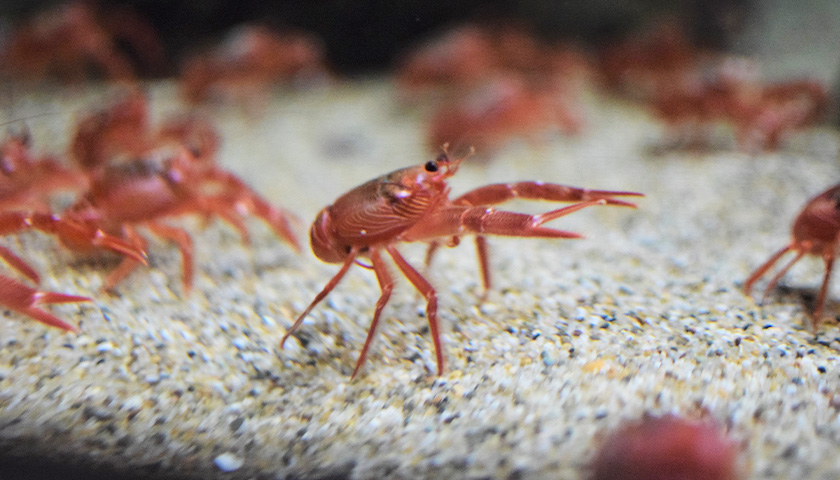by Alexa Schwerha
Officials estimate that more than 43,000 aquatic animals were killed after a Norfolk Southern train derailed earlier this month in eastern Ohio, causing toxic chemicals to be released into the air and water, the Ohio Department of Natural Resources (DNTR) announced Thursday.
Residents began reporting incidents of dead fish floating in local creeks after a controlled burn was performed to prevent an explosion from train cars carrying toxic chemicals including vinyl chloride. The total estimate was calculated based on observations on Feb. 6 and 7, DTNR Director Mary Mertz said, according to Fox 8.
“It’s important to stress that these small fish are all believed to have been killed immediately after the derailment,” Mertz reportedly said. “Because the chemicals were contained, ODNR has not seen any additional signs of aquatic life suffering in the streams. In fact, we have seen live fish return to Leslie Run.”
 The data included 38,222 dead minnows and approximately 5,500 deaths in a five-mile span of a variety of species including crayfish, amphibians and macroinvertebrates, Fox 8 reported. The deaths reportedly occurred within 24 hours of the derailment and the remains were disposed of to stop other animals from eating them.
The data included 38,222 dead minnows and approximately 5,500 deaths in a five-mile span of a variety of species including crayfish, amphibians and macroinvertebrates, Fox 8 reported. The deaths reportedly occurred within 24 hours of the derailment and the remains were disposed of to stop other animals from eating them.
The water source that the derailment reportedly spilled into runs 7 1/2 miles. Initial surveys found that 3,000 water species were killed after the contamination and 2,200 were minnows.
“The most recent tests by the Ohio River Valley Water Sanitation Commission (ORSANCO) indicate no butyl acrylate or vinyl chloride have been detected in the Ohio River,” the Ohio Environmental Protection Agency website reads.
The ODNR did not immediately respond to the Daily Caller News Foundation’s request for comment.
– – –
Alexa Schwerha is a reporter at Daily Caller News Foundation.
Photo “Crayfish” by kate.








